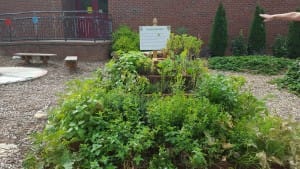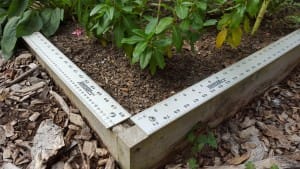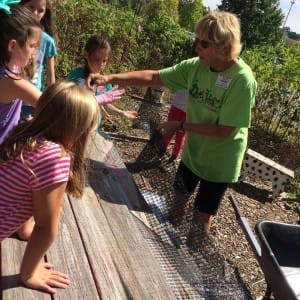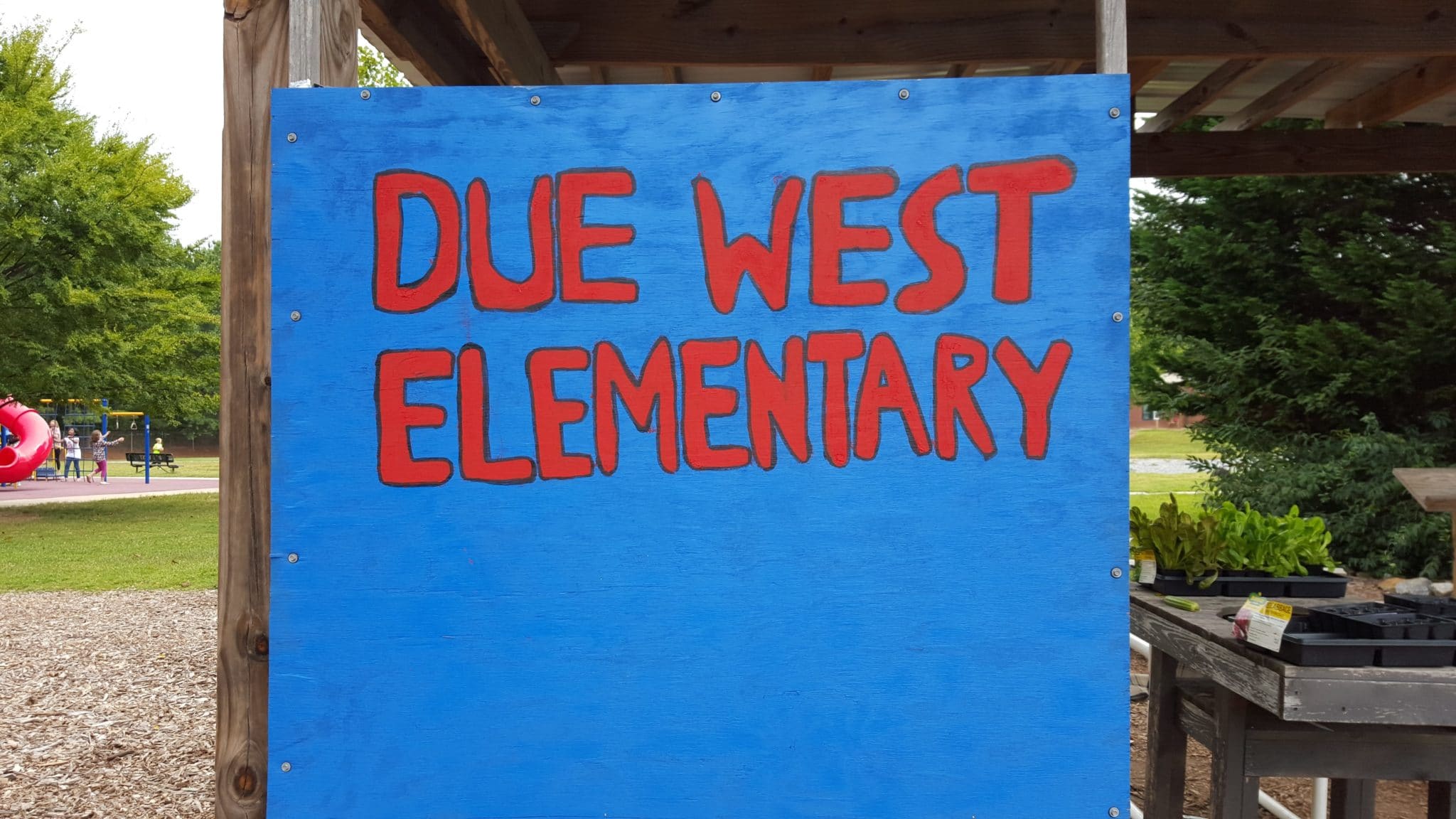 Recently I was privileged to visit the Due West Elementary School Garden in Cobb County, Georgia. The garden program is coordinated by Ms. Rita Fullick, a UGA Extension Cobb Master Gardener. She has been working with the program for four years and her enthusiasm is evident.
Recently I was privileged to visit the Due West Elementary School Garden in Cobb County, Georgia. The garden program is coordinated by Ms. Rita Fullick, a UGA Extension Cobb Master Gardener. She has been working with the program for four years and her enthusiasm is evident.
Due West Elementary School currently has 640 students. The school garden is spread out around the property. There is a sensory garden for the k-1st graders, a garden devoted to the importance of water, a pollinator garden, a wildlife habitat garden, and vegetable garden plots.
The Math Garden
 The math garden is unusual. The beds were created in geometric shapes and professional grade rulers line the beds. Metric and English measurements are both included.
The math garden is unusual. The beds were created in geometric shapes and professional grade rulers line the beds. Metric and English measurements are both included.
In the Math Garden the learning can be endless. Using a scale to measure soil weight or children’s weight. How much we can carry?
How far apart do we plant? How Deep … both in metric and standard measurements. How high is it growing? How many flowers or vegetables are planted?
Sound like math to you? Counting the number of weeds pulled and the number of rolly pollys collected is understanding the relationship between numbers and quantities. This connects counting to real life.
Did I mention that as the children are working and learning in the garden they are playing in dirt?
There is also an outdoor auditorium. The entire school property is a wonderful space for outdoor learning. The date I visited the students were getting ready for a soil experiment.
Community Support

The principal, Ms. Peggy Fleming, feels that every student should garden. Ms. Jan Divelbliss, the school science specialist, is also on board with the school garden. The school support is the biggest part of the school garden’s success. Parent involvement is also crucial. Ms. Fullick has a group of involved parents she calls Garden Angels. In addition to assisting during the school year, Garden Angel families volunteer to help keep the gardens in order during the summer months when school is out.
Ms. Fullick gave two pieces of advice she says could help any school garden. First, engage community partners. Don’t be afraid to ask local businesses to be a part of the garden. Visit the businesses in person and don’t be shy about asking for donations. Also, find local experts to provide programs for the students. A representative from the local water department helped the students in developing a rain barrel system.
Secondly, provide signage for the teachers. Some teachers are intimidated with the garden subjects and teaching outdoors. Having signage to guide them encourages more teachers to actually use the garden.
We thank Ms. Fullick for the tour and for the words of wisdom. Due West Elementary is fortunate to have her and we wish them a wonderful school year!
Happy Gardening!
- ParSLAY the Day! - June 12, 2024
- 6th Annual Great Southeast Pollinator Census - May 28, 2024
- Are you ready for Pepper Palooza? - July 5, 2023
